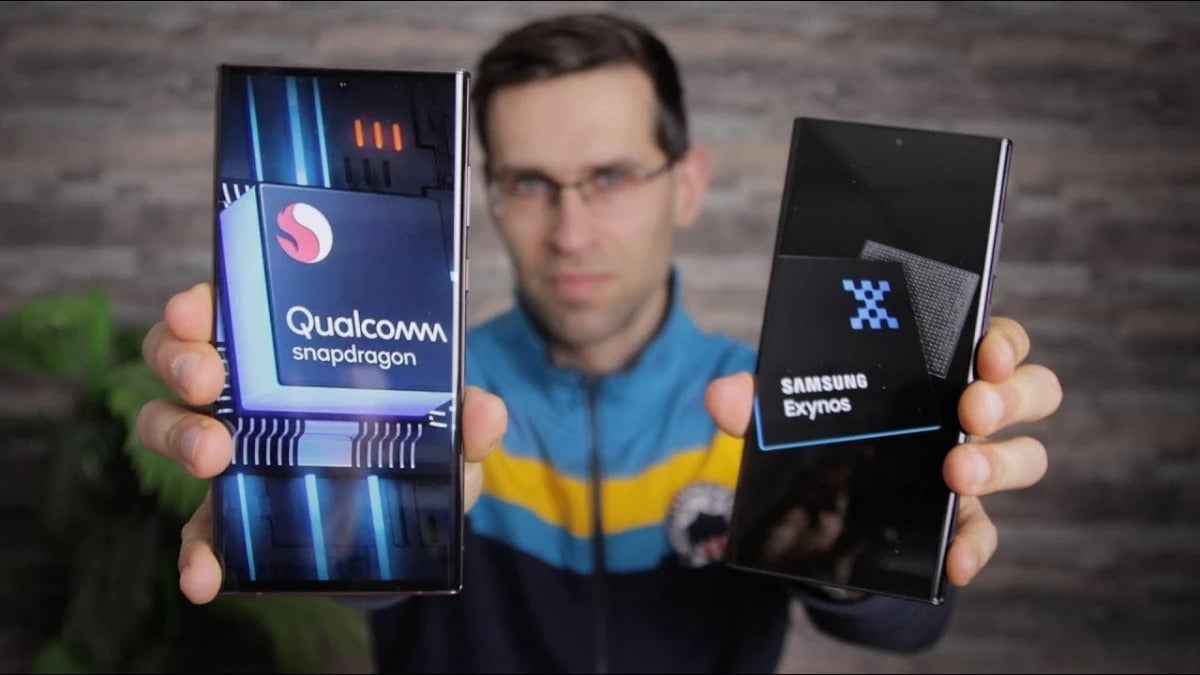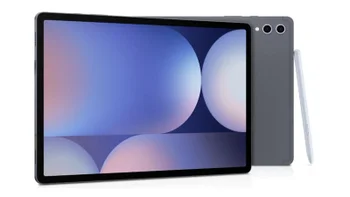Samsung's Exynos processors won't die with the S23's move to Snapdragon

The share of Samsung's Exynos line or mobile chipsets has fallen drastically from a record high of 76% in 2019, to the 20% it commanded in this past quarter, according to the Elec citing market analysis from Gfk.
Thanks to the announcement of the Galaxy A13 and Galaxy A53 which carry Exynos processors, though, Samsung is expected to finish the year having its own processor in 30% of the phones it shipped.
The Exynos line is not dead, though, despite the fact that the Galaxy S23, S23+, and S23 Ultra will reportedly all land with Snapdragon 8 Gen 2 chipsets only, regardless of the geographical region they will be sold in. Samsung will still place Exynos processors in 26% of its phones in 2023, says the report, albeit mainly on the low-end to the midrange side of the spectrum.
The reason why Samsung went with Snapdragon for the Galaxy S23 doesn't have much to do with throttling or thermal management issues of its Exynos 2300 chip that was supposed to go into the S23, but rather Qualcomm's superior 5G modem integrated with the upcoming SM8550 (likely to be called Snapdragon 8 Gen 2) chipset that can hardly be replicated by anyone at the moment.
At the MWC 2022 expo, Qualcomm announced the next generation of its award-winning 5G modem technology, the Snapdragon X70. Built on the 4nm fabrication method of TSMC, the Snapdragon X70 will be in the Galaxy S23 and other 2023 flagships, yet it will be sampling to customers in the second half of the year, and phones with the next-gen 5G connectivity will be on the market by year's end.
Instead of upping the Gigabit download speeds as it did with the previous Snapdragon X65, X60, X55 and X50 generation, Qualcomm decided to stick with the 10 Gigabit rating of the modem that is currently in phones like the Galaxy S22 series, and instead focus on decking the new modem out with extra features and AI capabilities. Qualcomm says that this is the the world’s first 5G AI processor in a modem-RF system. Here's what the new X70 AI module do, according to Qualcomm:
Qualcomm 5G AI Suite, Qualcomm 5G Ultra-Low Latency Suite, Qualcomm 5G PowerSave Gen 3 and 4X sub-6 carrier aggregation.
Breakthrough 5G speeds, coverage, low latency and power efficiency.
5G modem-RF system family capable of supporting every commercial 5G band from 600 MHz to 41 GHz.
World’s first 4X downlink carrier aggregation across TDD and FDD, mmWave-sub-6 aggregation.
Standalone mmWave support.
Uplink carrier aggregation and switched uplink support across TDD and FDD.
Global 5G multi-SIM including Dual-SIM Dual-Active (DSDA) and mmWave support.
Rapid commercialization of 5G Release 16 features through software updates.
Snapdragon X70 5G modem specs
At the MWC 2022 expo, Qualcomm announced the next generation of its award-winning 5G modem technology, the Snapdragon X70. Built on the 4nm fabrication method of TSMC, the Snapdragon X70 will be in the Galaxy S23 and other 2023 flagships, yet it will be sampling to customers in the second half of the year, and phones with the next-gen 5G connectivity will be on the market by year's end.
Qualcomm 5G AI Suite, Qualcomm 5G Ultra-Low Latency Suite, Qualcomm 5G PowerSave Gen 3 and 4X sub-6 carrier aggregation.
Breakthrough 5G speeds, coverage, low latency and power efficiency.
5G modem-RF system family capable of supporting every commercial 5G band from 600 MHz to 41 GHz.
World’s first 4X downlink carrier aggregation across TDD and FDD, mmWave-sub-6 aggregation.
Standalone mmWave support.
Uplink carrier aggregation and switched uplink support across TDD and FDD.
Global 5G multi-SIM including Dual-SIM Dual-Active (DSDA) and mmWave support.
Rapid commercialization of 5G Release 16 features through software updates.
These features are so hard to match for other 5G modem makers, or at least match with the same power envelope, that Apple gave up on developing a 5G modem chip of its own for now, and shipped all iPhone 14 models with a modem based on Qualcomm's current X65 darling. Ditto for Samsung's Exynos platform that can't, for now, develop a modem that will match Qualcomm's X70 in terms of power draw and features.
Follow us on Google News












Things that are NOT allowed:
To help keep our community safe and free from spam, we apply temporary limits to newly created accounts: